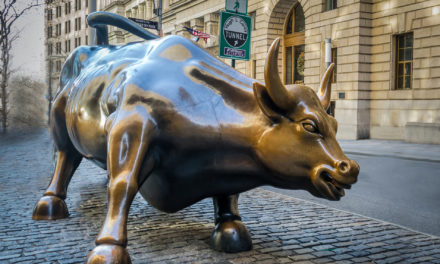
“Someone’s sitting in the shade today because someone planted a tree a long time ago.”
— Warren Buffett
The Warren Buffett investment philosophy calls for a long-term investment horizon, where a two-decade holding period, or even longer, would fit right into the strategy. How would such a strategy have worked out for an investment into Textron Inc (NYSE: TXT)? Today, we examine the outcome of a two-decade investment into the stock back in 2001.
| Start date: | 02/05/2001 |
|
|||
| End date: | 02/04/2021 | ||||
| Start price/share: | $25.32 | ||||
| End price/share: | $47.28 | ||||
| Starting shares: | 394.94 | ||||
| Ending shares: | 495.51 | ||||
| Dividends reinvested/share: | $6.82 | ||||
| Total return: | 134.28% | ||||
| Average annual return: | 4.35% | ||||
| Starting investment: | $10,000.00 | ||||
| Ending investment: | $23,445.08 | ||||
As shown above, the two-decade investment result worked out as follows, with an annualized rate of return of 4.35%. This would have turned a $10K investment made 20 years ago into $23,445.08 today (as of 02/04/2021). On a total return basis, that’s a result of 134.28% (something to think about: how might TXT shares perform over the next 20 years?). [These numbers were computed with the Dividend Channel DRIP Returns Calculator.]
Notice that Textron Inc paid investors a total of $6.82/share in dividends over the 20 holding period, marking a second component of the total return beyond share price change alone. Much like watering a tree, reinvesting dividends can help an investment to grow over time — for the above calculations we assume dividend reinvestment (and for this exercise the closing price on ex-date is used for the reinvestment of a given dividend).
Based upon the most recent annualized dividend rate of .08/share, we calculate that TXT has a current yield of approximately 0.17%. Another interesting datapoint we can examine is ‘yield on cost’ — in other words, we can express the current annualized dividend of .08 against the original $25.32/share purchase price. This works out to a yield on cost of 0.67%.
One more piece of investment wisdom to leave you with:
“The emotional burden of trading is substantial; on any given day, I could lose millions of dollars. If you personalize these losses, you can’t trade.” — Bruce Kovner




